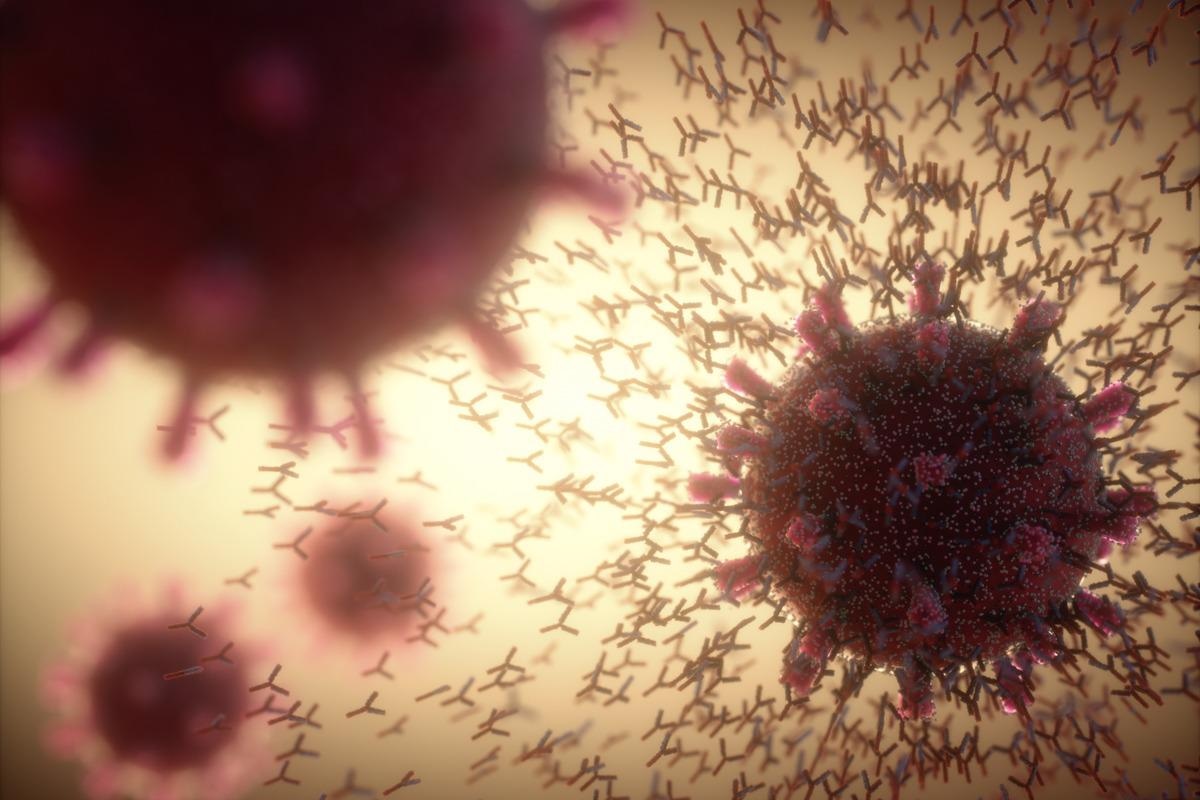In a study posted to the bioRxiv* preprint server, a multinational team of researchers investigated the mutations reported in the Omicron variant and its likely impact on the use of therapeutic antibodies in coronavirus disease 2019 (COVID-19) treatment as well as on vaccinated individuals.
 Study: Broadly neutralizing antibodies overcome SARS-CoV-2 Omicron antigenic shift. Image Credit: ktsdesign/Shutterstock
Study: Broadly neutralizing antibodies overcome SARS-CoV-2 Omicron antigenic shift. Image Credit: ktsdesign/Shutterstock
Background

 This news article was a review of a preliminary scientific report that had not undergone peer-review at the time of publication. Since its initial publication, the scientific report has now been peer reviewed and accepted for publication in a Scientific Journal. Links to the preliminary and peer-reviewed reports are available in the Sources section at the bottom of this article. View Sources
This news article was a review of a preliminary scientific report that had not undergone peer-review at the time of publication. Since its initial publication, the scientific report has now been peer reviewed and accepted for publication in a Scientific Journal. Links to the preliminary and peer-reviewed reports are available in the Sources section at the bottom of this article. View Sources
Severe acute respiratory syndrome coronavirus-2 (SARS-CoV-2) has been a global concern for the past two years, and the rise in the number of new variants poses multiple challenges to health care agencies. SARS-CoV-2 variants of concern (VOCs) are of particular importance as they are known to have immune evasion capabilities and increased transmissibility and pathogenicity. Of the five VOCs identified, the Omicron variant (B.1.1.529) is the latest and was reported first in South Africa in November 2021.
Studies showed that the Omicron variant has about 37 mutations in the spike (S) protein. The receptor-binding domain (RBD) in the S protein harbors at least 15 amino acid substitutions. RBD is the prime target of neutralizing antibodies induced by infection and vaccination, and the high number of mutations in the RBD could help the variant with immune evasion. The receptor-binding motif (RBM), a subdomain of RBD that interacts directly with the host receptor angiotensin-converting enzyme-2 (ACE2), reportedly has nine mutations.
About the study
In the present study, the team investigated whether the Omicron mutations emerged from its infectivity across animal species. Using surface plasmon resonance, the binding affinity of Omicron S was studied in mouse, American mink, and pangolin. Researchers also investigated the magnitude of immune evasion caused by these 37 mutations by determining plasma neutralizing activity against Wuhan-hu-1 S and Omicron S in convalescent patients or individuals vaccinated with six vaccines (mRNA-1273, AZD1222, BNT162b2, Sputnik V, Ad26.COV2.S, and BBIBO-CorV).
Furthermore, the researchers conducted a pseudovirus assay to investigate neutralization by monoclonal and polyclonal antibodies to study the binding of RBD to human and animal ACE2 receptors. Monoclonal antibodies (mAbs) used against SARS-CoV-2 act by blocking the S binding to ACE2 or targeting non-RBM epitopes (shared across many sarbecoviruses). They studied the in vitro neutralizing activity of therapeutic mAbs against Wuhan-Hu-1 S and Omicron S using VSV (Vesicular Stomatitis Virus) pseudoviruses.
Results
The study revealed that mutations of the Omicron variant increased the binding affinity of RBD to the human ACE2 receptor relative to Wuhan-Hu-1 RBD and caused the acquisition of affinity to the mouse ACE2 receptor.
Individuals who received Ad26.COV2.S or Sputnik V or BBIBO-CorV vaccines did not show any neutralizing activity against Omicron S. Those who received mRNA-1273, BNT162b2, and AZD1222 showed 33-, 44- and 36-fold decrease, respectively, in neutralizing activity against the Omicron S protein. Prior infection in vaccinated individuals showed a less pronounced 5-fold decrease in neutralizing activity.
The mAb sotrovimab showed a 3-fold decrease in neutralizing activity against the Omicron S protein. However, with a cocktail of cilgavimab and tixagevimab, a 200-fold reduced potency was observed against the Omicron S protein. The findings also reported that at least 26 RBM-directed mAbs failed to neutralize the Omicron S protein. In contrast, only three (RBM-specific) mAbs retained neutralization potency against the Omicron S protein. At least one mAb from each of the four classes (defined by RBD binding sites I, II, IV, V) could neutralize the Omicron S protein.
Conclusions
The magnitude of immune escape and increased affinity to mouse ACE2 driven by the Omicron variant indicates a major SARS-CoV-2 mutational shift. This study found a lower immune response in vaccinated individuals to the Omicron variant and reported that only six mAbs of the 44 tested retained potent neutralizing activity. There were three mAbs (S2K146, S2X324, and S2N28) targeting site I, and S2X259, Sotrovimab, and S2H97 mAbs each directed at sites II, IV, and V, respectively. These mAbs were directed to four conserved antigenic sites in the Omicron S and other sarbecoviruses.
On the whole, the substitutions in the Omicron RBD resulted in a 2.4-fold increase in binding affinity to human ACE2. The team proposed that antigenic shift in the Omicron variant could result from ping-pong transmission between humans and rodents or viral replication in hosts with immunodeficiency. Furthermore, broadly neutralizing mAbs that recognize conserved epitopes among SARS-CoV-2 variants and other sarbecoviruses may contribute to controlling the pandemic and curtailing future sarbecovirus zoonotic spillovers.

 This news article was a review of a preliminary scientific report that had not undergone peer-review at the time of publication. Since its initial publication, the scientific report has now been peer reviewed and accepted for publication in a Scientific Journal. Links to the preliminary and peer-reviewed reports are available in the Sources section at the bottom of this article. View Sources
This news article was a review of a preliminary scientific report that had not undergone peer-review at the time of publication. Since its initial publication, the scientific report has now been peer reviewed and accepted for publication in a Scientific Journal. Links to the preliminary and peer-reviewed reports are available in the Sources section at the bottom of this article. View Sources